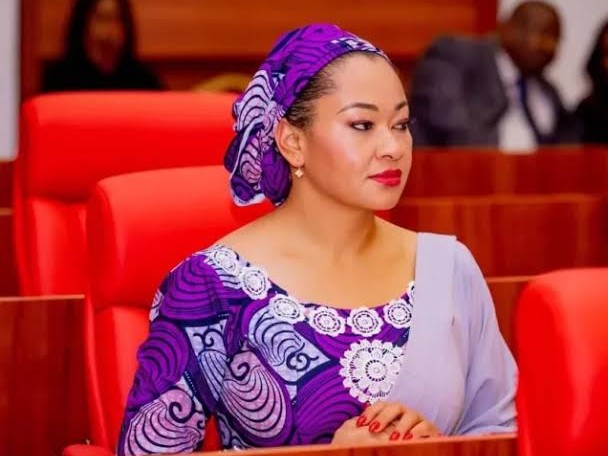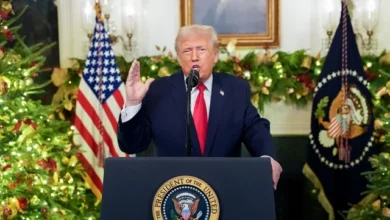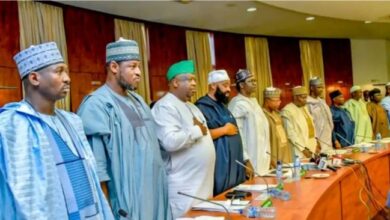Senate stalls Natasha Akpoti’s Reinstatement, Cites Due Process

Amid mounting public pressure and a recent court order mandating her recall, the Nigerian Senate has clarified why it cannot yet reinstate suspended senator Natasha Akpoti-Uduaghan, citing the need to first review the Certified True Copy (CTC) of the judgment issued by the Federal High Court.
Speaking to the News Agency of Nigeria (NAN) on Sunday, the Chairman of the Senate Committee on Media and Public Affairs, Sen. Yemi Adaramodu (Ekiti South), said the Senate had already applied for the CTC and will act in accordance with the ruling after due legislative deliberation.
“We cannot act in a vacuum,” Adaramodu stated. “Once we receive and study the CTC, the Senate will sit and take a formal position in line with the law and our internal rules.”
Background: Suspension Over Sexual Harassment Allegation
Senator Natasha Akpoti-Uduaghan (PDP–Kogi Central) was suspended for six months on March 6, 2025, following a recommendation from the Senate Committee on Ethics, Code of Conduct and Public Petitions. The decision stemmed from a sexual harassment allegation she made against Senate President Godswill Akpabio.
As part of the suspension, Akpoti-Uduaghan’s salary, security detail, and access to the National Assembly were withdrawn. She subsequently challenged the action at the Federal High Court in Abuja, where Justice Binta Nyako last week ordered her reinstatement — while simultaneously sanctioning her for contempt and imposing a ₦5 million fine.
Constitutionality vs Internal Rules: The Legal and Legislative Tension
Senator Adaramodu defended the Senate’s position over the reinstatement, pointing out that the legislature is constitutionally empowered to make and enforce its own Standing Orders — a principle the court itself acknowledged in its ruling.
“The Senate is a constitutional institution, not a mob,” Adaramodu noted. “We are governed by rules. If there are no rules, then anyone could walk in and demand to sit in the Senate President’s chair — and that would be chaos.”
He further explained that parliamentary discipline, including suspensions, falls within the purview of the legislative chamber and that only members can fully appreciate the nuances of how those powers are exercised.
The senator clarified that the 180-day suspension refers to parliamentary days, not calendar days, stressing that the Senate’s actions were within its rights and responsibilities under both legislative norms and constitutional practice.
BRANDECONOMY ANALYSIS: Power, Precedent & Political Optics
This case presents a complex intersection of legislative autonomy, judicial oversight, and political accountability. While the judiciary has rightly enforced constitutional protections against excessive legislative sanctions, the Senate remains within its powers to regulate its own conduct, particularly in cases involving breaches of decorum or ethical violations.
For observers of governance and institutional development, the matter raises key questions:
- Can internal legislative discipline override external judicial intervention?
- Should a legislative chamber’s disciplinary mechanisms be reviewed for clearer limitations on suspension terms?
- How should sensitive allegations against presiding officers be handled without prejudicing the accuser or undermining institutional integrity?
Furthermore, Akpoti-Uduaghan’s case reflects the political risks of whistleblowing within elite power structures. That she was sanctioned after accusing a top-ranking senator reveals the delicate balance between transparency and institutional control in Nigeria’s democratic space.
BOTTOM LINE:
While the Federal High Court has ruled in her favour, Senator Natasha Akpoti-Uduaghan’s return to the Red Chamber will likely hinge not on emotion or political pressure, but on strict procedural compliance and Senate consensus. Until the Certified True Copy of the court judgment is reviewed, her reinstatement remains on hold.
This saga underscores the broader need for institutional reform — not just in the Senate, but in the relationship between Nigeria’s branches of government, especially where justice, accountability, and internal discipline collide.












